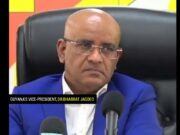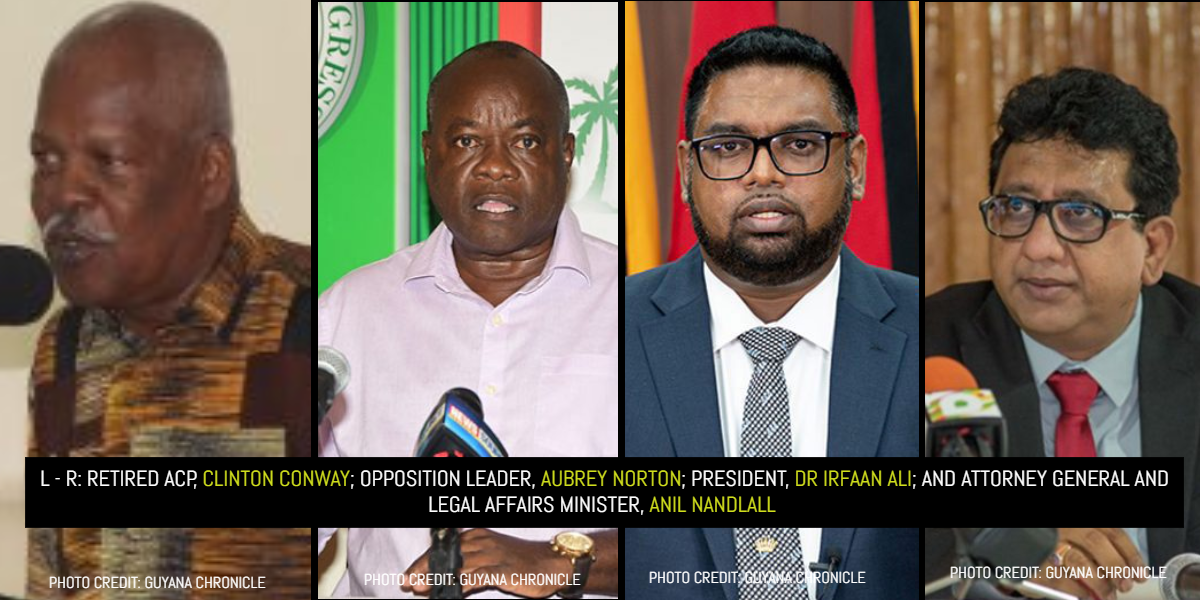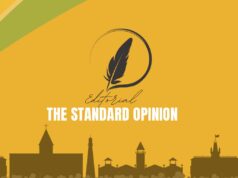The manner in which the Police Service Commission (PSC) was reconstituted is not sitting well with retired Assistant Commissioner of Police (ACP) and ex-PSC member, Clinton Conway.
In a recent letter to the editor published in the Kaieteur News today, Conway highlighted the clause “meaningful consultation” as the “watchwords” in Section 210 (4) of the Guyana Constitution which states, inter alia, that “the President, acting after meaningful consultation with the leader of the opposition, may appoint a person who is qualified to be appointed as a member of the Commission to act in that office”.
Conway, who was among others arrested last year in a connection with a multimillion-dollar fraud against the Guyana Police Force (GPF), expressed the opinion that there could not have been “meaningful consultation” since the May 13, 2022, engagement between the Opposition Leader, Aubrey Norton and President, Dr Irfaan Ali was but a mere “encounter”.
“In my honest view, the meeting between the President and the Leader of the Opposition on May 13, cannot be considered as meaningful consultation but an encounter. A second invitation for a meeting did not materialize, so there were [sic] no meaningful consultation as required under the Constitution,” Conway said.
The retired law enforcement officer concluded that the President was ill-advised and therefore, his actions must be seen as unconstitutional.
But Conway’s commentary runs contrary to sentiments recently expressed by the Attorney General (AG) and Minister of Legal Affairs, Anil Nandlall, who insists that the President adhered to the rule of law in “letter and spirit”.
As far as he is concerned, “meaningful consultation” was achieved between President Ali and Norton, despite the latter’s no-show at the second round of engagement that was set for March 30, 2022.
By sunset the following say, President Ali had sworn in members of the Integrity Commission and the PSC. The swearing-in occurred even after Norton threatened that he would take legal action against the government if it moved ahead to arbitrarily appoint members.
But Nandlall contends that “consultation” does not mean “agreement”.
He said, “It means that the President must consult with the Leader of the Opposition. The Leader of the Opposition does not have to agree to the names as opposed to the Chancellor and the Chief Justice, where it (the Constitution) specifically speaks to an agreement between the Leader of the Opposition and the President. [But] for these commissions, consultation is what is required. Mr Norton does not seem to understand what consultation connotes…”
“Consultation” or “meaningful consultation”, according to the Constitution, means that “the person or entity responsible for seeking consultation shall identify the persons or entities to be consulted and specify to them in writing the subject of the consultation and an intended date for the decision on the subject of consultation”.
Secondly, the person or entity responsible shall “ensure that each person or entity to be consulted is afforded a reasonable opportunity to express a considered opinion on the subject of the consultation”.
In this case, the “persons or entity responsible” is the President, while the “persons or entity to be consulted” is the Opposition Leader. The AG said that President Ali fulfilled this criterion “to the letter and spirit” of the constitution when Norton was informed about the commencement of the consultation, along with the purpose of the activity and the intended date for the decision on the subject of consultation.
He said that Ali also satisfied the second requirement. Norton did not attend the follow-up meeting and thereby squandered his “reasonable opportunity to express a considered opinion” within the timeframe identified for the decision.











